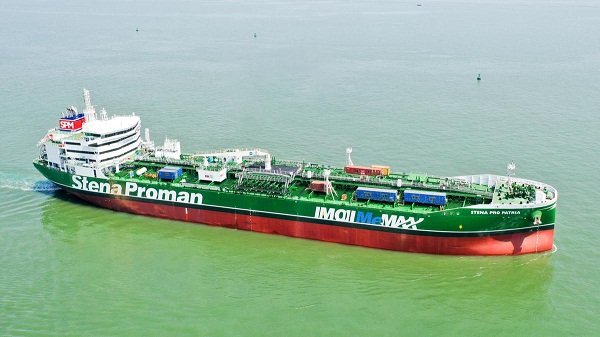Shipbuilder delivers first methanol hybrid tanker

The country's first methanol dual-fuel vessel was delivered in Guangzhou, Guangdong province, on June 20, 2022. [Photo provided to chinadaily.com.cn]
The country's first methanol-propelled dual-fuel vessel was delivered on Monday in Guangzhou, Guangdong province.
The vessel was developed and built by Guangzhou Shipyard International (GSI), which is listed on the Shanghai Stock Exchange. It is a subsidiary of China State Shipbuilding Corp.
The drive system of the 49,900-ton oil and chemical tanker is a methanol hybrid that can reduce up to 75 percent of carbon emissions, 15 percent of nitrogen emissions and 99 percent of sulfur and particulate emissions.
Zhou Xuhui, vice-president and senior engineer at GSI, said the green ship is part of a development trend in global shipping.
"GSI has orders to build 38 green ships," Zhou said, adding that it also builds ships propelled by liquefied natural gas and electricity. "GSI has led the world in design and construction."
It has orders to build six 49,900 ton methanol dual-fuel tankers, he said, noting that in addition to the vessel delivered on Monday, another three have been launched and will soon be completed.
GSI has mastered a series of world-leading energy conservation, emissions reduction and green technologies. The dual-fuel ship can operate in any of four fuel modes — fuel oil, fuel hydrate, methanol and methanol hydrate. It is the first application of a hydrate fuel scheme in shipping sector.
Crews can control the combustion state to reduce exhaust emissions, and can meet the highest international emission requirements of the international maritime organization without installing an exhaust gas treatment system, according to the company.
Currently, methanol ships can be refueled at more than 100 ports around the world. Compared with alternative products, including LNG, methanol has more convenient storage and transportation requirements, lower infrastructure costs and significant safety advantages. It is rapidly developing into a marine fuel substitute.
All rights reserved. Presented by China Daily









